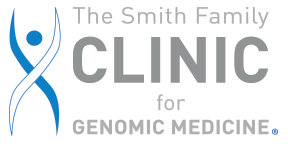Have you ever wondered why certain medications work wonders for some people but not for others? Or why one class of medication did not alleviate your symptoms while another one did? The answer may lie within your genome.
When you take a drug, your body needs to break it down and take it to the place it is intended to act. We all carry genes that code for various proteins that help our bodies metabolize and transport drugs. Many such genes code for enzymes responsible for breaking down drugs, transporting them across cell membranes, and interacting with their targets in our bodies.
People can have changes in the genes that metabolize certain drugs, called gene variants. Some gene variants cause enzymes to work more or less efficiently. These variants can impact drug effectiveness, side effects, and even the risk of adverse reactions. Pharmacogenomic testing helps identify these genetic variants and provides valuable insights into your body’s ability to process specific drugs. It involves a simple process of collecting a sample, often through a painless cheek swab or a blood test, and examining specific genes related to drug metabolism.
By evaluating these genetic variants, healthcare professionals can gain valuable insights into how your body processes medications and determine the most effective and safe treatment options for you as an individual.
Information from pharmacogenomic testing can tell your doctor whether specific medications are likely to be effective for you. Here is a hypothetical patient example:
Dan has a history of coronary artery disease and a stent. His doctor wants to put him on medicine and recommends pharmacogenomic testing to determine whether he has any genetic changes that impact how he responds to cardiovascular medications. The test found that Dan is predicted to be a poor metabolizer of a commonly prescribed anti-clotting drug, clopidogrel, based on changes in the gene CYP2C19. Based on these results, his doctor decides to prescribe an alternate medication that will be more effective for Dan.
Pharmacogenomic testing can also identify potential risks and guide your healthcare provider in selecting drugs that are less likely to cause adverse reactions, enhancing your safety and overall well-being. Here is another hypothetical patient example:
Karen has a history of high cholesterol. Her doctor prescribed a cholesterol medication called simvastatin, which brought her cholesterol to an appropriate level. However, since taking the medicine, Karen has felt more fatigued. Her doctor ordered a pharmacogenomic test which found that Karen is predicted to be a poor metabolizer of simvastatin based on changes in a gene called SLCO1B1. Additional clinical tests helped confirm that she is indeed having adverse side effects. Her doctor was able to make informed changes to her dose.
Armed with pharmacogenomic information, healthcare providers can personalize your treatment plan by prescribing medications that are more likely to work for you, minimizing the risk of adverse reactions and optimizing therapeutic outcomes. It’s like having a tailored roadmap that guides your healthcare team toward the most effective treatment options, ensuring your well-being and peace of mind.
Pharmacogenomic tests are not available for all drugs. Some categories of medications with known pharmacogenomic associations include antidepressants, ADHD medications, chemotherapies, pain medications, cholesterol-lowering medication drugs, and anticoagulant drugs.
If you are interested in learning what your genome can tell you about current and future medications you might take, contact the Smith Family Clinic for Genomic Medicine.

